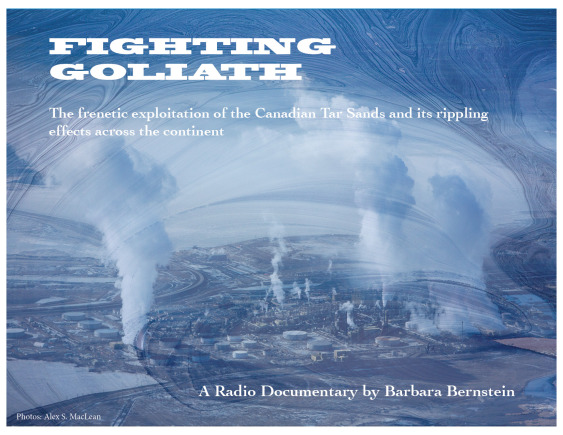[prettyquote]”You put a big black blob in the middle of Canada, and you reach out a tentacle to every part of the Coast, there is a giant octopus that is essentially wrapping its tentacles around North America.”[/prettyquote]
Last year, Portland’s KBOO Community Radio profiled what is “the largest industrial project on Earth”: the North American tar sands. Typically, one hears of the “Canadian tar sands,” as if the issue is one that lives only north of the US national border and need not concern American citizens. But reporter Barbara Bernstein’s documentary, “Fighting Goliath,” revealed an alarming and very real threat that deserves the same scrutiny as the coal export and oil train schemes better known in the Northwest and Plains states.
However, this is not just an account of the tar sands as a sprawling behemoth, from their massive open pit mines to their toxic tailings ponds, from their environmentally sensitive transport routes to their huge water needs and giant equipment and infrastructure demands. Bernstein also tells the story of a powerful and diverse group of citizens who came together to oppose tar sands expansion in the corporate interest and to demand accountability from government officials in responding to the public’s concerns.
It’s the most riveting hour of radio you’ll hear for a while, guaranteed. Listen in.


